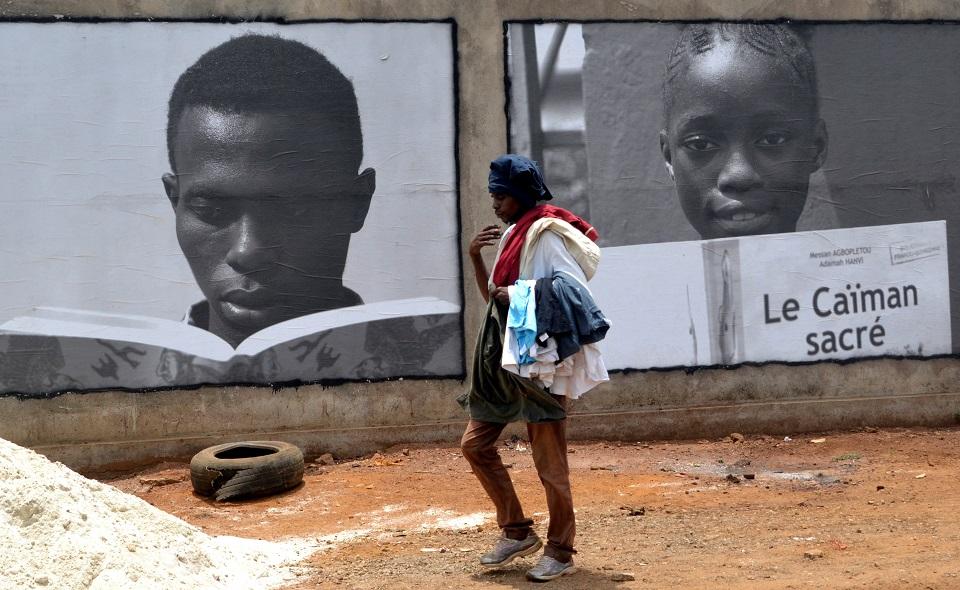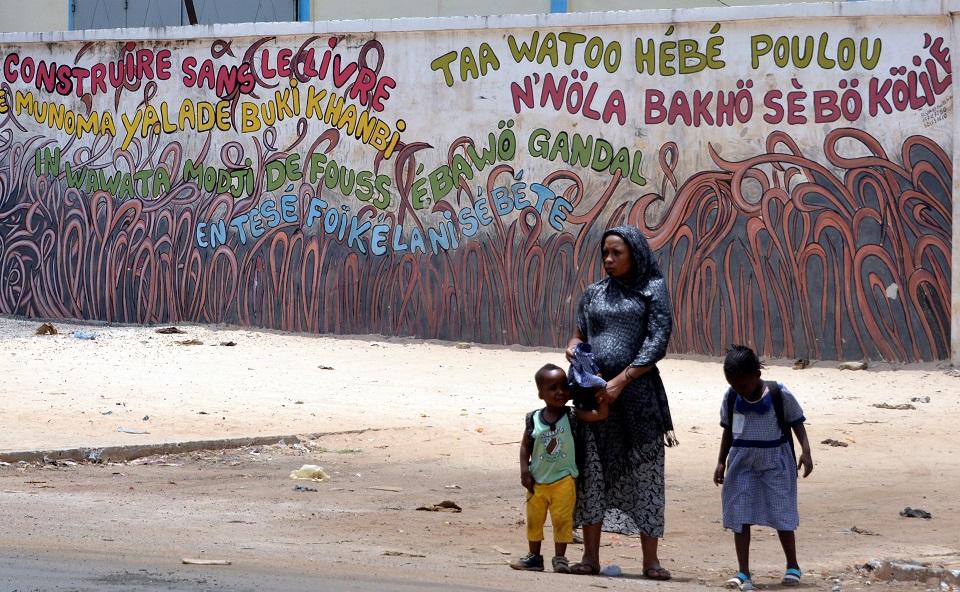Guinea city named 2017 World Book Capital turns page on Ebola
CONAKRY, Guinea - Piles of rubbish and broken-down cars are being removed from the rundown streets of Conakry, and disgruntled hawkers on the main avenues have been told to close their stalls and move on.
"We've been working night and day," says truck driver Mamadouba Soumah, who was requisitioned for the cleanup.
On ministerial orders, in Soumah's words, the capital of dirt-poor Guinea has been scrubbed and primped to transform it into "the pearl of the world's lagoons."
The reason for the transformation has nothing to do with a visit by a foreign VIP or a major sporting event, but with literature.
Conakry is being enshrined as World Book Capital for the next 12 months.

The honor propels the poverty-stricken, little-known city to the ranks of cultural titans such as Madrid, New Delhi, Montreal, Turin and Amsterdam—all previous holders of the title since its inauguration in 2001.
As World Book Capital, a city gets the chance to showcase established and emerging literary talent, both from home and abroad, and to lure major book publishers.

Need a wellness break? Sign up for The Boost!
Stay up-to-date with the latest health and wellness reads.
Please enter a valid email address
Your email is safe with us
It is also a golden opportunity for promoting talent in other areas—theater, music and cinema.
But to Guinea, the title also helps the country to literally turn the page on the 2013-16 Ebola epidemic that today burdens its image abroad.
Guinea was the epicenter for an outbreak of the disease that spread to neighboring Sierra Leone and Liberia, killing more than 11,300 people and triggering a worldwide fear of contagion.
One of the poorest countries in the world—it ranks 145th in the World Bank's league table for gross domestic product (GDP)—Guinea was awarded stellar marks by health watchdogs for rolling back Ebola with patient grassroots work, substituting for lack of funds and hi-tech help.

UNESCO has similarly singled out community involvement and literacy programs to explain why it made such a seemingly unusual choice for 2017 World Book Capital.
The UN cultural agency made the announcement in July 2015, even before the Ebola scare was officially over.
"Books, learning and reading are key to human life," its director general Irina Bokova said.
"The strong investment of the Republic of Guinea in promoting books and literacy bears witness to a clear vision of culture and education as drivers of development and recovery."
Senegal honored
The World Book Capital program, launched on Sunday, celebrates culturally vibrant Senegal, a fellow francophone nation, as guest of honor.
Giant posters on Conakry's northern seafront avenue bear tribute to some of the heroes of African literature.
They include Leopold Sedar Senghor—the Senegalese poet and former president who drove the "Negritude" movement that combined use of French with a distinct African cultural identity.
Intellectuals in Conakry are hoping that Guinea's turn in the spotlight will bring desperately needed funds to boost literacy in a country where only 35 to 40 percent of Guineans complete their education. Few people read books outside those required by school curricula.
"If you are looking for some safe place to stash your money in Guinea, you hide it in a book. No-one around here will steal it," a history teacher quipped. — AFP

Need a wellness break? Sign up for The Boost!
Stay up-to-date with the latest health and wellness reads.
Please enter a valid email address
Your email is safe with us









